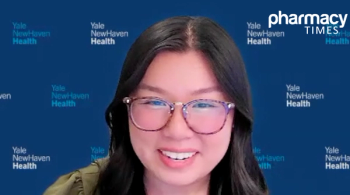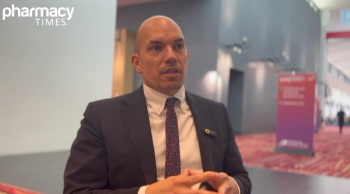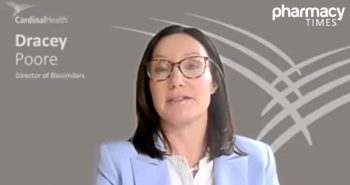
Amy Duong, PharmD, BCACP, highlights pharmacists' essential responsibilities in chronic inflammatory demyelinating polyneuropathy (CIDP) patient care and immunoglobulin therapy management.

Amy Duong, PharmD, BCACP, highlights pharmacists' essential responsibilities in chronic inflammatory demyelinating polyneuropathy (CIDP) patient care and immunoglobulin therapy management.

Pharmacists play a critical role in managing complex pericarditis cases.


Rilonacept offers a targeted approach to treating recurrent pericarditis by blocking IL-1 inflammatory pathways.

Saad Usmani, MD, MBA, FACP, FASCO, explores treatment duration, patient characteristics, and toxicity profiles in transplant-ineligible patients with newly diagnosed multiple myeloma.

Amanda Gronniger, PharmD, CPh, BCCP, discusses practical strategies pharmacists can use to improve cholesterol management, from lifestyle counseling to emerging therapies.

Chip Hailey, a 74-year-old pharmacist with hemophilia B, shares how gene therapy has liberated him from decades of challenging treatment and restored his independence.

Electronic prior authorization (EPA) technology can streamline the complex process of obtaining prior authorizations for GLP-1 medications.

Zongertinib shows promising efficacy and safety for HER2-mutant NSCLC, with a 71% response rate and low toxicity, paving the way for future treatments.

A study reveals a 14-gene assay guides chemotherapy decisions effectively in patients with early-stage non-small cell lung cancer (NSCLC).

Saad Usmani, MD, MBA, FACP, FASCO, discusses the subgroup analysis of transplant-ineligible patients with newly diagnosed multiple myeloma from the CEPHEUS trial.

National Community Pharmacists Association President Jeff Harrell, PharmD, shares insights from this year’s event, highlighting its growing impact, the importance of engaging with policymakers, and the urgent issues facing independent pharmacies.

Compared with fulvestrant, vepdegestrant significantly extended progression-free survival and improved response rates.

A study of early-onset colorectal cancer found significant racial disparities, with younger patients more frequently diagnosed at advanced stages.

Shore Medical Center enhances patient safety with a pharmacy-driven intravenous to oral opioid conversion protocol, minimizing risks and improving pain management.

The expert explored the complex prior authorization process for GLP-1 medications, discussing challenges in documentation and medical necessity.

Experts emphasize the importance of tailored vaccination strategies for pneumococcal based on individual risk factors.

RSV vaccination for older adults requires understanding risk factors, using empathetic communication strategies, and proactively identifying eligible patients through careful review of medical histories and care transitions.

Logan Schneider, MD, highlights the importance of integrating patient-reported outcomes into clinical trials to better capture the full therapeutic impact of low-sodium oxybate (Xywav) beyond traditional sleep metrics.

Pharmacists are positioned to significantly impact weight management by offering accessible expertise in medication, lifestyle guidance, and long-term support for healthier choices.

Lacy La Fever, PharmD, MS, discussed outcomes associated with different carboplatin AUC dosing strategies.

Dracey Poore explores the future of biosimilars, emphasizing the need for increased adoption.

Specialty pharmacy experts discuss how emotional support, addressing patient loneliness, and peer-to-patient programs can significantly improve medication adherence and patient care.

UPMC enhances care for patients with heart failure through integrated pharmacy and cardiology team collaboration.

Experts emphasized the importance of addressing regulatory and payer-side challenges to fully leverage AI's potential in pharmacy settings.

Digital pharmacy solutions are revolutionizing patient care.

This screening method can help empower patients to better manage their health and seek additional care.

Jennifer Guthrie, RPh, district leader at CVS pharmacy describes the different medications to treat allergy symptoms and highlight how CVS stands out when addressing patients’ needs.

Cardinal Health is investing in cold chain logistics and packaging solutions to expedite the delivery of novel therapies from FDA approval to patient access.

Paula E. Voinescu, PhD, MD, emphasized the need for additional research in this area, noting it is both “surprising and upsetting.”